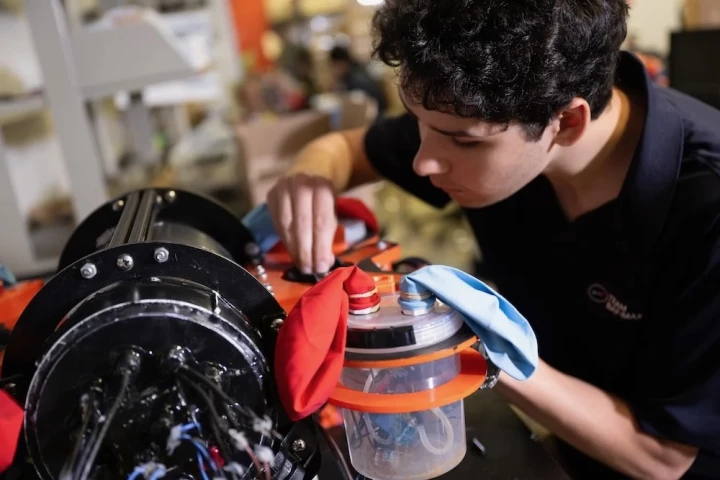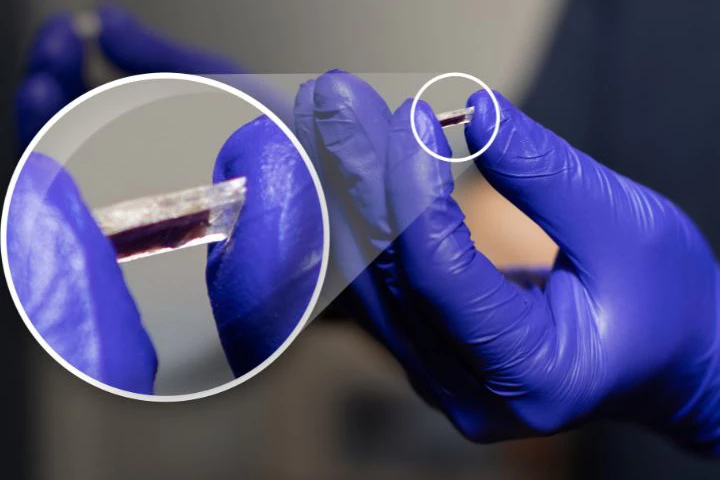University of Houston
-
Sleep studies provide a lot of important information but aren’t very patient-friendly. So, researchers redesigned the process, eliminating the multitudes of wires normally used while producing results that are on par with the current gold-standard method.
-
If scuba divers use inflatable BCDs (buoyancy control devices), why don't underwater robots? Well, an experimental new one does, and the technology is said to be much more energy-efficient than traditional methods of moving up and down in the water.
-
Prostheses that replace fingers are typically complex, expensive devices, the cost of which often isn't covered by medical insurance. The student-designed Lunet, on the other hand (no pun intended) is simple and can be made from open-source plans.
-
Monitoring extreme environments requires a sensor continues to work in high temperatures. Now, researchers have developed a piezoelectric sensor that operates reliably at the temperature of erupting mafic lava, the hottest type of lava on Earth.
-
Even when someone is determined to beat their fentanyl addiction, there's still a good chance they will relapse at some point, and start taking the opioid again. A new vaccine is designed to help get them back on track, by blocking fentanyl's effect on the brain.
-
Aeromine says its unique "motionless" rooftop wind generators deliver up to 50% more energy than a solar array of the same price, while taking up just 10% of the roof space and operating more or less silently. In independent tests, they seem legit.
-
Engineers at the University of Houston have put forward a new solution to keep planes ice-free, developing an ice-shedding surface coating they say is 100 times stronger than other state-of-the-art materials.
-
Researchers have demonstrated a new technique for helping heart cells regenerate after a heart attack, using mRNA to return the cells to a stem-cell-like state. Tests in mice showed drastic improvements to heart function a month after a heart attack.
-
Engineers in the US and Mexico have developed a way to use soot from emissions to improve solar thermal devices. The coatings are not only cheaper to produce but more efficient than using materials like graphene, while reducing pollution.
-
We all learned in elementary school science that water freezes at 0 °C – but it’s actually not quite that simple. New experiments have shown that tiny droplets can remain liquid right down to -44 °C, if kept in contact with a soft surface.
-
Batteries that use organic materials in place of rare metals are seen as a promising way to tackle their environmental footprint, and new research demonstrates how their performance might be brought up to speed.
-
Extracting and refining copper into a useful form can be energy intensive and requires harsh chemical treatments. But now researchers at the University of Houston have discovered bacteria that naturally convert toxic copper ions into metallic copper.
Load More











